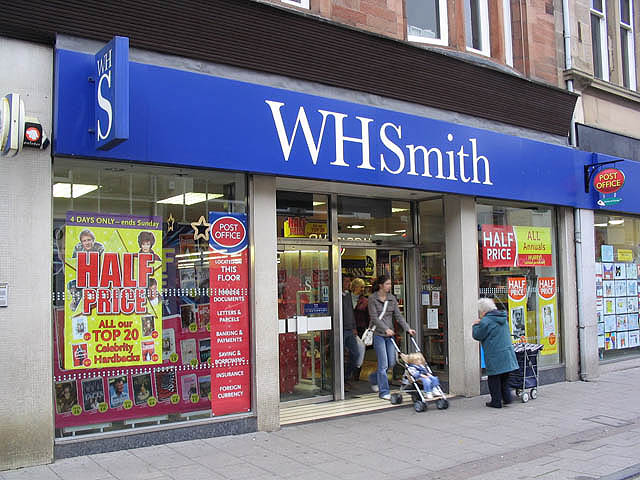
WH Smith, the iconic British retailer, is reportedly in discussions to sell its entire high street division, marking a historic moment for the company, which first opened its doors over
two centuries ago.
With a market value of nearly £1.5 billion, WH Smith has been in confidential negotiations with potential buyers for several weeks, according to Sky News. The potential sale pertains solely to its high street stores and excludes its travel outlets located in airports, train stations, and hospitals, which remain a core part of its operations.
The high street arm of the business comprises around 500 stores across the UK and employs approximately 5,000 staff. Despite its historical presence, this division now accounts for a smaller portion of the company's overall performance. In contrast, WH Smith’s travel-focused segment has grown significantly, generating 75% of the company's revenue and 85% of its profits.
Last year, the high street division still reported a profit of £32 million, though its customer service ratings have often been less favorable. Meanwhile, the travel segment has flourished with over 1,200 stores globally, 600 of which are in the UK.
Chief Executive Carl Cowling is reportedly leading the effort to sell the high street business, but the identity of potential buyers remains undisclosed.
A storied history
WH Smith was established in 1792 when Henry Walton Smith and his wife Anna opened their first store in Little Grosvenor Street, London. Over the years, the business expanded, and by 1848, it launched its first travel retail store at Euston Station.
The business was later passed down to the Smiths' sons, William Henry and Henry Edward, who spearheaded further growth. William Henry Smith eventually entered politics, becoming an MP in 1868 and later serving as First Lord of the Admiralty and First Lord of the Treasury.
The retailer’s headquarters are now based in Wiltshire, and the brand operates in 28 countries worldwide.
Recent challenges
WH Smith has faced challenges in recent years. Between 2011 and 2019, it was repeatedly ranked as one of Britain’s worst high street retailers by consumer watchdog Which?, with customers citing disorganized stores, dated interiors, and inconsistent stock.
The company has also been closing underperforming stores. This week, it announced the closure of 17 high street locations, including branches in Bournemouth, Luton, Bolton, and Newport, among others. Over the past two years, 10 other stores have shuttered in areas such as Manchester, Crewe, and Ramsgate.
Despite these setbacks, WH Smith’s travel division remains a robust contributor to the business, leading the company to focus on its global travel retail operations.
The future of WH Smith
On Friday, WH Smith’s shares closed at 1148p, down roughly 5% over the past year. A company spokesperson confirmed that the high street division is under review:
“WHSmith confirms that it is exploring potential strategic options for this profitable and cash-generative part of the Group, including a possible sale. Over the past decade, WHSmith has become a focused global travel retailer. The Group's Travel business now accounts for three-quarters of its revenue and 85% of its trading profit.”
The company emphasized that no definitive agreements have been made and stated that updates would be provided as appropriate.
As WH Smith considers its next steps, this potential sale marks the end of an era for one of Britain’s most recognizable high street brands. Photo by Walter Baxter, Wikimedia commons.



































